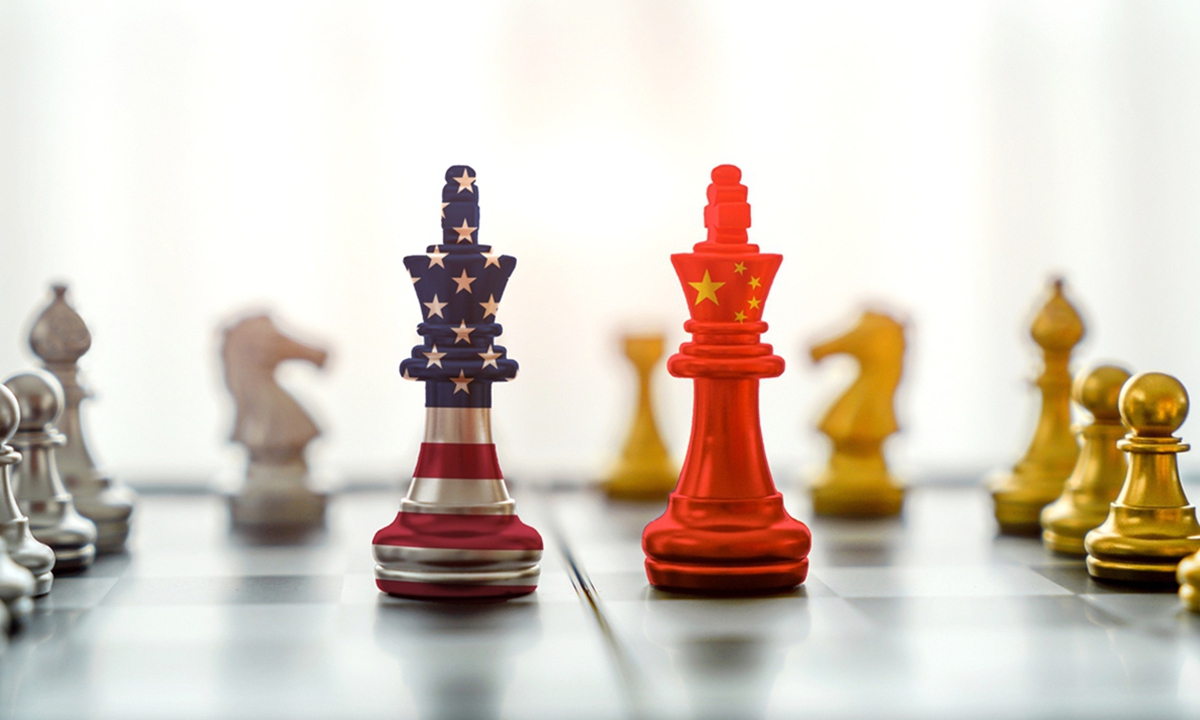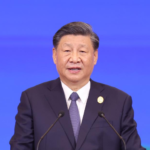Despite a recent climate of detente between China and the US, a US report by a congressionally mandated panel hyped “threats” from China and Russia, urging Washington to prepare for possible simultaneous wars with Moscow and Beijing and enhance its already formidable nuclear arsenal.
Analysts said Friday that the report will harm the fragile thawing in relations between China and the US. As the report is likely to be reflected in the future National Defense Authorization Act, it will also poison the global strategic environment for the next decade, they said.
Citing a senior official involved in the report by the Strategic Posture Commission, Reuters said the panel members are worried about “ultimate coordination” between China and Russia, which will get the US into a two-war construct.
The US and its allies must be ready to deter and defeat both adversaries simultaneously, the Strategic Posture Commission said, urging Washington to expand or restructure its nuclear arsenal to tackle the “existential challenge.”
The panel’s vice chair, Jon Kyl, a retired Republican senator, said that the US requires huge defense spending increases, and both the White House and Congress need to tell the US people that higher defense spending is a small price to pay “to hopefully preclude” a possible nuclear war involving the US, China and Russia.
It is very rare that this quasi-official report suggests the need to prepare for simultaneous war with China and Russia, including nuclear deterrence and counterattack, Lü Xiang, a US studies research fellow at the Chinese Academy of Social Sciences, told the Global Times on Friday.
The report is perhaps the boldest vision from the US strategic community since the Cold War, endorsing the interests of the military-industrial complex, and seeking to influence the US decision-making community, Lü said.
The report came at a time when Beijing-Washington ties showed signs of warming, after a slew of meetings between high-level officials. On Thursday local time, the US accepted China’s invitation to attend the Xiangshan Forum, a top security forum in Beijing this month, according to the media.
This report undoubtedly poisons the current climate of warming ties between China and the US, and will inevitably poison the strategic environment for the next decade, said Lü, noting the report’s recommendations are likely to be embodied in the National Defense Authorization Act, and the US will most likely significantly expand its nuclear forces in the next decade.
It means that the US is going to maximize the “challenges” and then respond to the “worst possibilities it has assumed,” he noted.
Although China has always emphasized an active defense strategy, we must also be prepared for a risky US posture on nuclear weapons, Lü said.
In February, Senior Colonel Tan Kefei, spokesperson for the Chinese Ministry of National Defense, stressed that even though the US has the largest nuclear arsenal in the world, it is still investing heavily in upgrading its nuclear triad. The US has been repeatedly hyping up the so-called “China nuclear threat,” only to seek excuses for expanding its own nuclear arsenal and maintaining military hegemony.
In 2020, Fu Cong, then director general of the Department of Arms Control and Disarmament, cited statistics from renowned international think tanks, pointing out that the US nuclear arsenal stands at about 5,800 nuclear warheads, which is almost 20 times that of China’s.
The US report is still asking for more defenses spending, but how much more the US economy can afford to raise its defense budget remains doubtful, Lü said.
For fiscal year 2024, the US defense budget request hit another record high of $842 billion, more than the gross domestic product of Saudi Arabia for the entire year of 2021, and 20 percent higher than the combined defense budgets of nine countries, including China, Russia, India, and the UK, According to Xinhua.
US strategic circles should clearly understand that if a nuclear war between China, the US and Russia really breaks out, it will be disastrous for the world. Moreover, if the US assumes that a nuclear war will break out, others will look at the US as a participant, which poses risk to the US as well, analysts said.













